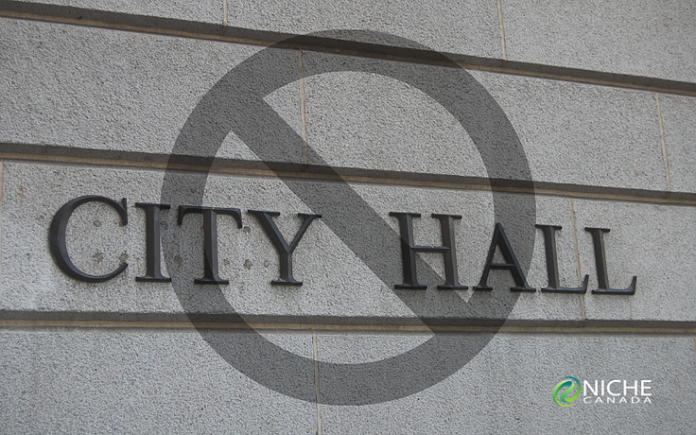There are cities, towns and villages across the country that are hanging up the keep-out signs as they opt out of hosting retail cannabis shops within their borders.
Provincial governments are giving municipalities the right to choose when it comes to these stores, as well as powers to restrict and prevent other cannabis-related businesses from opening up shop.
And, whether it’s an outright ban, or large buffer zones and expensive licensing fees, some local governments are doing their best to curb legalization plans.
Citing safety concerns or unanswered questions, it appears many are choosing politics or fear, over public approval and facts.
So, how do we get more governments to better understand the legal cannabis industry and the ramifications of their decisions? We need to get more elected officials to take the advice of Windsor councillor Jim Morrison who said: “Let’s not be so fearful of change.”
The answer lies in public engagement and consultation.
SEE ALSO: 4.6 million Canadians report using cannabis: Statistics Canada
Let’s take Ontario as an example. That province has more than 400 municipalities, 77 of which decided to prohibit retail cannabis stores.
These included large centres like Mississauga, Markham, Oakville, Pickering, Richmond Hill and Vaughan. Some of these votes were overwhelmingly opposed, like in Oakville where councillors voted 14-1 to opt out.
The decision is not about money.
They are turning down lucrative businesses and the province has pledged $40 million over two years to help local governments with the costs of legalization.
And, if Ontario’s portion of the federal excise tax on recreational marijuana exceeds $100 million over the first two years, the province will also give half of the surplus to municipalities hosting cannabis stores.
The decision is not about facts. It’s believed the majority, if not all, the staff reports to council recommended opting in, but the elected officials elected to go in a different direction.
The CAO of Marmora and Lake recommended the municipality opt in after public survey found that 74 per cent of the community supported the move. And, yet council voted to opt out.
Mississauga Mayor Bonnie Crombie said they were opting out so they could conduct further consultation. However, the city only held one public meeting to gauge feedback.
Perhaps if council had the political will to conduct a full engagement program, they would have been able to determine where the community stood on the issue before opting out of the program.
SEE ALSO: TERRY LAKE: Overturning the cannabis stigma
The neighbouring city of Brampton chose to conduct a variety of public consultation exercises, ranging from an in-person town hall meeting, telephone town halls as well as online surveys to gauge public reaction.
And, although not everyone on council supported the move, the city relied on community feedback and voted 8-3 to opt in.
Public education is the foundation for the successful implementation of a legalized cannabis regime and it’s the only way to break down the walls of stigmatization.
So, whether it’s local governments, boards of trade, professional associations, women’s groups or parent advisory councils, we need to reach out to these groups and get people talking.
We need to have healthy debate and discussion with the naysayers about their concerns and make a genuine effort to understand their perspective, so we can figure out a path forward.
There is still a great deal of uncertainty across our country, particularly in communities with cultural biases against cannabis. In some instances, it’s not about gaining acceptance, it’s about changing cultural values.
Because the truth of the matter is that when a community opts out it restricts access to legal cannabis and ensures the black market continues to thrive. Allowing for easier access to regulated forms of cannabis will ultimately improve public health and safety.
That said, it’s important to highlight the need for cannabis businesses to lead by example. The country is watching and anything less than reputable will feed into the fear-mongering and discourage other municipalities from taking a leap of faith.
This piece was produced by NICHE Canada.



















